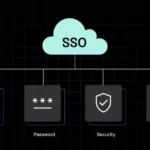Medical records are one of the most crucial pieces of evidence in very many cases in legal practice. In most cases, much attention is given to them in a personal injury case, a medical malpractice claim, or a disability appeal. That said, there are ways to obtain such records, most of which come with the costs of copying medical records. We explore these matters in more depth in this blog post, giving fresh insights into how cost-effective strategies can be managed by legal professionals.
Understanding Medical Record Copying Fees
Medical record copy fees include all costs associated with retrieving and copying patient records. This consists of retrieval fees, per-page charges, medical record copying fees by state, certification fees, and even mailing fees. Legal professionals are often clueless on how to estimate these charges and control them.
Cost-Saving Strategies for Handling Copying Fees
The fact remains that there always seems to be a practical impossibility for legal practitioners to achieve the balance that must be met with the demand for medical records and the cost associated with its acquisition. Some techniques that have proved most effective at handling and reducing medical record copying charges are as follows:
- Negotiation with Health Care Providers and Record Custodians: Copies of medical records can be obtained in a cost-effective manner through proactive negotiation with the parties providing healthcare and keeping the records. Attorneys can be proactive negotiators by seeking better-than-market rates for copying fee arrangements with healthcare providers and record custodians. Discussing the possibility of bulk discounts, flat-rate agreements, or waivers for certain charges can significantly reduce costs.
- Leveraging Technology to Efficient Record Management: Technology can retrieve and organize medical records in a less cumbersome way than manual organization. Investment in Electronic Health Record (EHR) access, cloud-based storage, and document management software does not only increase efficiency, but also decrease expenses due to the purchase of papers and mailing.
- Outsourcing to Specialized Record Retrieval Services: There are specialized services where record retrieval can be outsourced, and this can be done often at lower costs. They usually have an established relationship with healthcare facilities for faster and more efficient means of access to records. On top of that, they could give discounts on volume and handle the logistics regarding record delivery.
Legal and Regulatory Considerations
Legal professionals who manage the fees associated with copy fees should pursue these laws and regulations that fit into a jungle to balance compliance, protection of patient privacy, and ethical standards. Here are vital considerations to keep in mind:
- Compliance with HIPAA and Privacy Laws Relating to Medical Records: Attorneys are subjected to extensive regulation in the nature of access to and production of medical records, including under the Health Insurance Portability and Accountability Act (HIPAA). Compliance with HIPAA not only assures patient privacy but also avoids such costly penalties.
- Ensuring that Patients’ Information is Kept Secure, Confidential, and Safe: This is even more critical: safeguarding patient information. Safeguards in place to protect sensitive data from breaches include secure storage systems, encrypted communications, and proper disposal procedures.
- Ethical Practices in Managing Copying Fees and Record Access Expenses: Ethical considerations guide legal professionals in dealing fairly and transparently with clients and record custodians. Transparently outlining a copying fee structure to clients and not gouging on prices makes for ethical practice.
Case Studies and Real-Life Examples
The following are practical case study examples portraying the implementation of strategies in cost-saving on medical record copying fees management:
- A personal injury-based law firm had negotiated a bulk fee reduction with a local hospital in case of acquisition of medical records. They were able to reduce the per-page fee by approaching hospital administration and providing statistics on how many times they would require the records. This kind of negotiation saved them a huge amount over many cases and thus let the firm be able to allocate the resources better.
- The next case happens to be one of a legal office that underwent a paradigm shift from traditional paper-based record management into partnering with a provider of digital one. With this transition, the firm, over time, did not only cut its printing and storage costs but also had better access and organization of the records. With cloud-based storage and document management software, the firm became agile in reaching its records. Therefore, the attorneys saved time in records acquisition and better served their clients.
Final Words
If you are an attorney or legal professional looking for relatively priced, hassle-free solutions in terms of acquiring medical records, team up with Record Retrieval Solutions. Their experience is nationwide, and they have a solution that integrates with ease in handling the complexity of record retrieval, all in compliance with the law and security standards. Contact them today and find out how they can streamline your process of getting records and help cut your copying costs.





